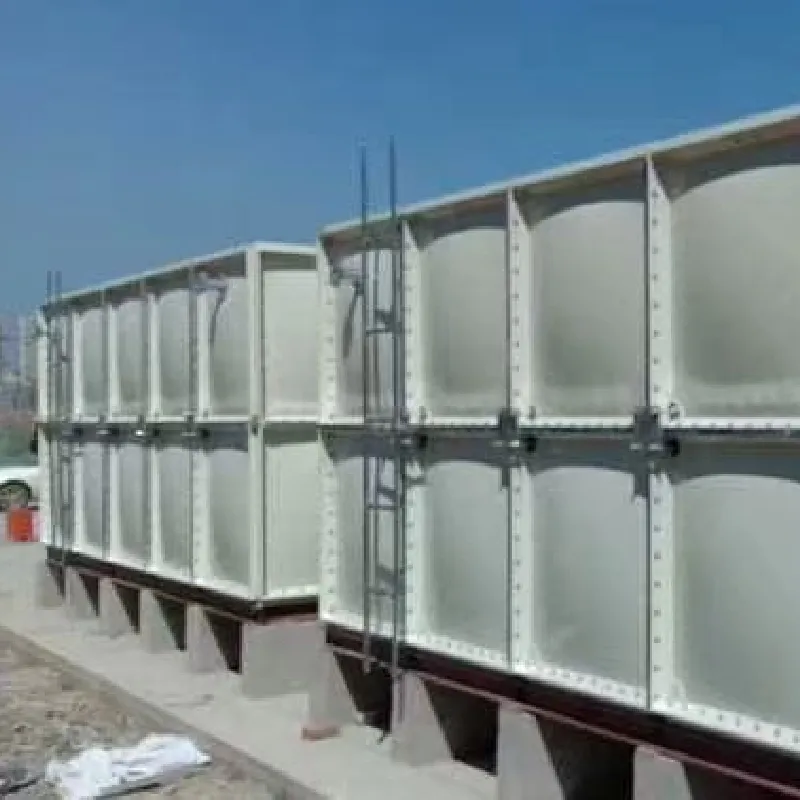loading...
- No. 9, Xingyuan South Street, Dongwaihuan Road, Zaoqiang County, Hengshui, Hebei, China
- admin@zjcomposites.com
- +86 15097380338
- Welcome to visit our website!
frp vessel for water treatment
FRP Vessels for Water Treatment A Comprehensive Overview
In recent years, the demand for effective and durable solutions in water treatment has risen significantly. As industries and municipalities pursue cleaner water sources and improved processing techniques, advancements in material technology have led to the development of Fiberglass Reinforced Plastic (FRP) vessels. These vessels have become increasingly popular due to their unique properties, versatility, and efficiency in various water treatment applications.
What are FRP Vessels?
FRP, or Fiberglass Reinforced Plastic, is a composite material that consists of a plastic matrix reinforced with fibrous glass. This combination results in a strong, lightweight, and corrosion-resistant product ideal for various industrial applications, including water treatment. FRP vessels are typically used for filtration, storage, and chemical treatment processes, providing a robust alternative to traditional materials such as steel and concrete.
Advantages of FRP Vessels in Water Treatment
1. Corrosion Resistance One of the primary advantages of FRP vessels is their exceptional resistance to corrosion. Conventional materials, especially metal, often succumb to rust and degradation when exposed to moist environments and corrosive chemicals. In contrast, FRP vessels maintain their integrity over time, reducing the need for frequent replacements and repairs.
2. Lightweight Nature FRP vessels are significantly lighter than their metal counterparts. This characteristic makes them easier to transport and install, leading to reduced labor costs and shorter construction timelines. Lightweight vessels also require less structural support, offering flexibility in design and installation.
3. High Strength-to-Weight Ratio FRP materials boast a high strength-to-weight ratio, which means they can withstand substantial pressure without the added weight. This trait is crucial in water treatment processes where pressure fluctuation is common, ensuring the reliability and safety of the operation.
4. Thermal Insulation FRP vessels provide excellent thermal insulation properties, which can be beneficial in certain water treatment processes where temperature control is paramount. This insulation minimizes heat loss and maintains optimal temperatures for various treatments.
5. Customizability FRP technology allows for a high degree of customization in vessel design and size. Manufacturers can tailor vessels to meet specific operational requirements, whether it's for residential water treatment systems or large-scale industrial applications. This adaptability enhances the efficiency and effectiveness of water treatment solutions.
frp vessel for water treatment

Applications in Water Treatment
FRP vessels find extensive applications across multiple realms of water treatment
- Filtration Systems In filtration processes, FRP vessels serve as housing for various types of filters, including carbon, sand, and multimedia filters, ensuring the effective removal of impurities and contaminants from water sources.
- Water Storage FRP vessels can be designed for efficient water storage, offering a safe and secure medium for storing treated water, reducing the risk of contamination.
- Chemical Treatment FRP vessels often play a pivotal role in the handling and storage of chemicals used in water treatment plants, such as chlorine or acid solutions. Their resistance to chemical corrosion makes them ideal for safe storage and application.
Environmental Considerations
The use of FRP vessels in water treatment also aligns with growing environmental awareness. By prolonging lifecycle and reducing waste, FRP vessels contribute to sustainable practices in water management. Furthermore, the lightweight nature of FRP requires less energy for transportation, further minimizing the carbon footprint associated with water treatment processes.
Conclusion
In conclusion, FRP vessels have emerged as a vital component in modern water treatment systems. Their unique properties, including corrosion resistance, lightweight design, and versatility, make them a preferred choice for various applications. As industries continue to prioritize effective and sustainable water treatment practices, the utilization of FRP vessels is likely to expand, providing innovative solutions to meet the challenges of water quality and supply. Whether it’s for municipal water systems or industrial applications, the future of water treatment seems promising with the increasing adoption of FRP technology.
-
The Rise of FRP Profiles: Strong, Lightweight, and Built to LastNewsJul.14,2025
-
SMC Panel Tanks: A Modern Water Storage Solution for All EnvironmentsNewsJul.14,2025
-
GRP Grating: A Modern Solution for Safe and Durable Access SystemsNewsJul.14,2025
-
Galvanized Steel Water Tanks: Durable, Reliable, and Ready for UseNewsJul.14,2025
-
FRP Mini Mesh Grating: The Safer, Smarter Flooring SolutionNewsJul.14,2025
-
Exploring FRP Vessels: Durable Solutions for Modern Fluid HandlingNewsJul.14,2025
-
GRP Structures: The Future of Lightweight, High-Performance EngineeringNewsJun.20,2025
